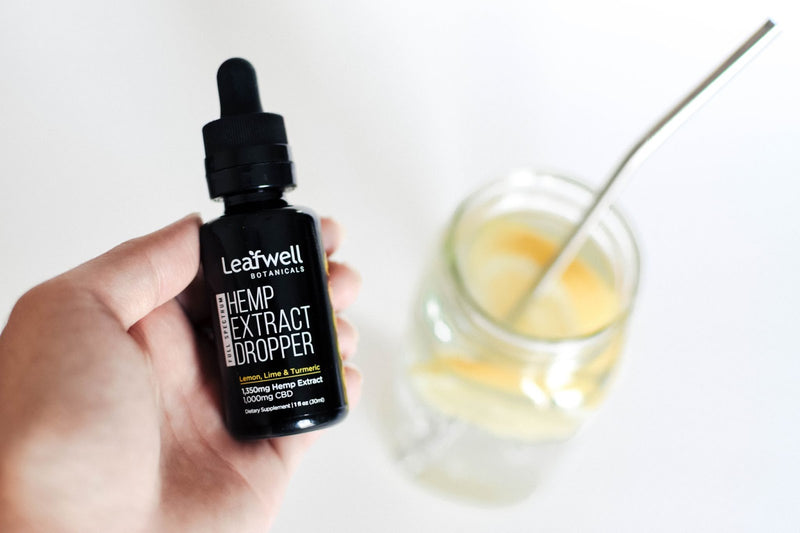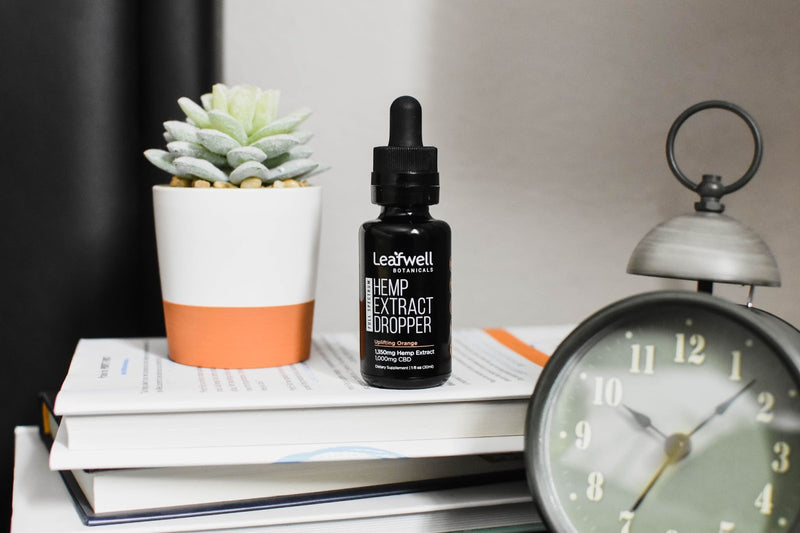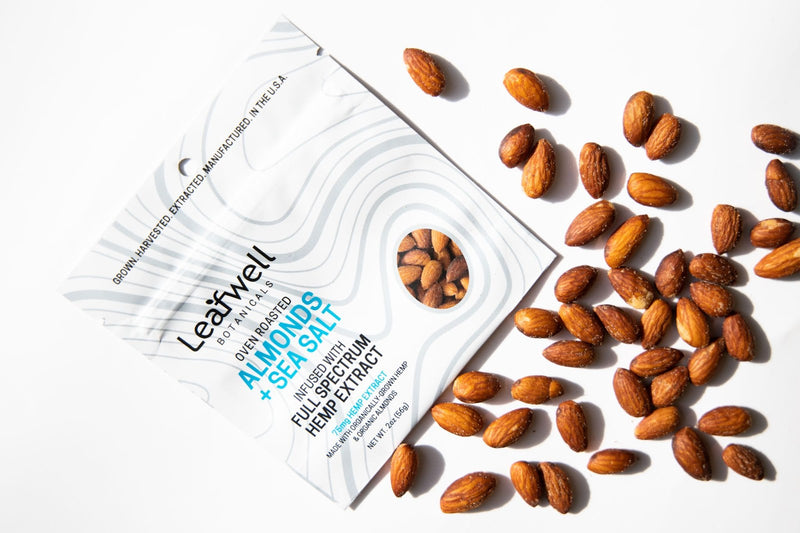Call to Action | Overview on the USDA Interim Final Rule (IFR)

At Leafwell Botanicals we're passionate about all things hemp and believe it or not that includes regulations! While the USDA made significant progress in the right direction with the Interim Final Rule (IFR) there is still work to do. Our and many of the other hemp businesses inputs alone will not be enough to drive change. The USDA needs to hear from the public as well in order to enact change that will allow the hemp industry to thrive going forward.
- Please submit a comment to the USDA (IFR) by clicking [here] and then clicking the button that says "Comment Now!" towards the top right of the page.
- If you need help thinking through some key points please check out our IFR comment submission [here].
We spent the time reading through all 161 pages of the USDA IFR and summarized what we believe to be the key points below so you don't have to but if you'd like to read the full IFR please click [here]
Federal vs. State Regulations
To kick it off, the USDA’s federal plan states clearly that their plan supersedes state law and as a result any state that would like to self-regulate will need their plan approved by the USDA. Several states with robust hemp regulatory frameworks around the country are working diligently to put plans in front of the USDA for approval to limit uncertainty for farmers. It’s important to note that if an individual state wanted to be stricter than the USDA and restrict the cultivation, extraction, manufacturing, and even distribution of hemp products, they can. However, they cannot stop hemp from passing through their state heading to another destination under any circumstance.
Testing Regulations
The proposed testing regulations are where many of the concerns for farmers and state’s with thriving hemp economies across the country lie. Here are some of the key points to keep in mind regarding testing.
- The change most farmers are concerned with is that now for their crops to qualify as Industrial hemp the level of THC is measured as the post-decarboxylated level of delta-9 THC. This means that instead of only testing for the current level of delta-9 THC the test will have to account for the current level of THC-A which converts to d9-THC at ~87.7% minus the measurement of uncertainty (same as margin for error) identified by the laboratory testing based on their accreditation. The decarboxylation process occurs once heat is applied to the material which causes a chemical reaction that removes a carboxyl group and releases carbon dioxide and activates the THC. The 2014 & 2018 farm bills both only contemplated the d9-THC levels. Based on 2017 / 2018 harvests if all farms were tested in accordance with this rule, a majority would fail.
- Some states have stricter regulations (more in-line with USDA IFR proposal) than the current farm bill while others defer to the 2018 farm bill.
- There was not any specificity as to what will be tested which still leaves a lot of uncertainty for farmers as to where the goal post is for THC thresholds because if it’s just the flower / buds THC concentration will be higher than if you’re testing the full top 1/3rd of the plant for example.
- Samples must be collected by an USDA approved sampling agent, DEA officer, or another state or local law enforcement agency will be required to pick up the samples from farmers.
- Lab testing facilities will be required to be registered with the DEA in case they receive material that is considered marijuana because it tests above the 0.30% THC threshold.
- Lab testing facilities will be required to either be approved through the Laboratory Approval Program the USDA is contemplating putting together or be ISO 17025 accredited. This is a welcome change for many as it’ll bring at least a minimum level of quality assurance when working with testing labs.
Time-frame Between Sampling & Harvesting
The current USDA IFR mandates the hemp must be harvested within 15 days of sample collection date which would be close to impossible to achieve logistically. Within this timeframe someone would need to 1) Visit the farm & collect the sample, 2) take it back or mail the sample to the facility where it would need to be tested, 3) have it sorted and tested by the laboratory, 4) have the report generated by the lab and sent back to the USDA / overseeing officials & the farmer for review, 5) a communication giving the green light, and finally 6) the farmer would need to ensure they can either harvest themselves or schedule one of the companies that helps farmers harvest to come in and harvest in time. At a small scale this may be achievable but when thousands upon thousands of these samples are coming in at the same time from thousands of farms across each state it is unlikely to happen not even accounting for inclement weather or unexpected delays.
Disposal of Non-Compliant Material
Disposal was historically handled by the individual farmer but according to the USDA IFR any material that tests above the 0.30% threshold would need to be collected by a person authorized to handle marijuana such as a DEA officer, duly authorized Federal, State, or Local officer, or a DEA authorized reverse distributor.
Inequity in Ownership
The USDA has stated that anyone with a felony drug conviction cannot be an owner in a company cultivating hemp for 10 years following their date of conviction. We strongly disagree that people with felony drug convictions should be barred from being owners in cultivation operations. This is an incredible opportunity for reform and reintroduction into society for a segment of the population that served and did their time and could potentially have a highly relevant skillset that they can now allow them to positively contribute to society.
Negligent Violations
The USDA is adding negligent violations and negligent with a culpable (intentional, knowingly, or recklessly) mental state violations. Anyone who receives a negligent violation will be put under a corrective action plan to help them become compliant and will be closely monitored by the USDA. The most notable reason for a negligent violation is for producing a plant that tests above 0.50% post decarboxylated d9-THC (which is more common than one might think). We don’t believe this threshold should exist as anything under 5-10% it clearly was not the intent of the farmer to grow marijuana. First-time hemp farmers should not be discouraged from participating by a rule like this. If someone was to commit a negligent violation with a culpable mental state they must immediately be reported to the Attorney General, USDA, and chief law enforcement officer of the State or Tribe.
Call to Action!
The USDA opened a 60 day window for people to comment which they recently extended to January 29th, 2020. They're genuinely interested in hearing from businesses & the public to make adjustments that'll allow the industry to thrive while protecting people. If you’d like to learn more about the points we are providing the USDA feedback on please take a look at our comment submission here. We encourage you to take a few minutes and submit comments of your own as the USDA and government officials will weigh heavily how the public feels about hemp here. If you have any questions, please don’t hesitate to reach out at contact@leafwellbotanicals.com.







